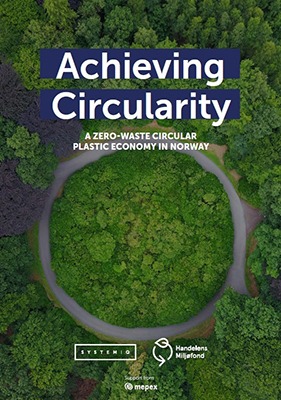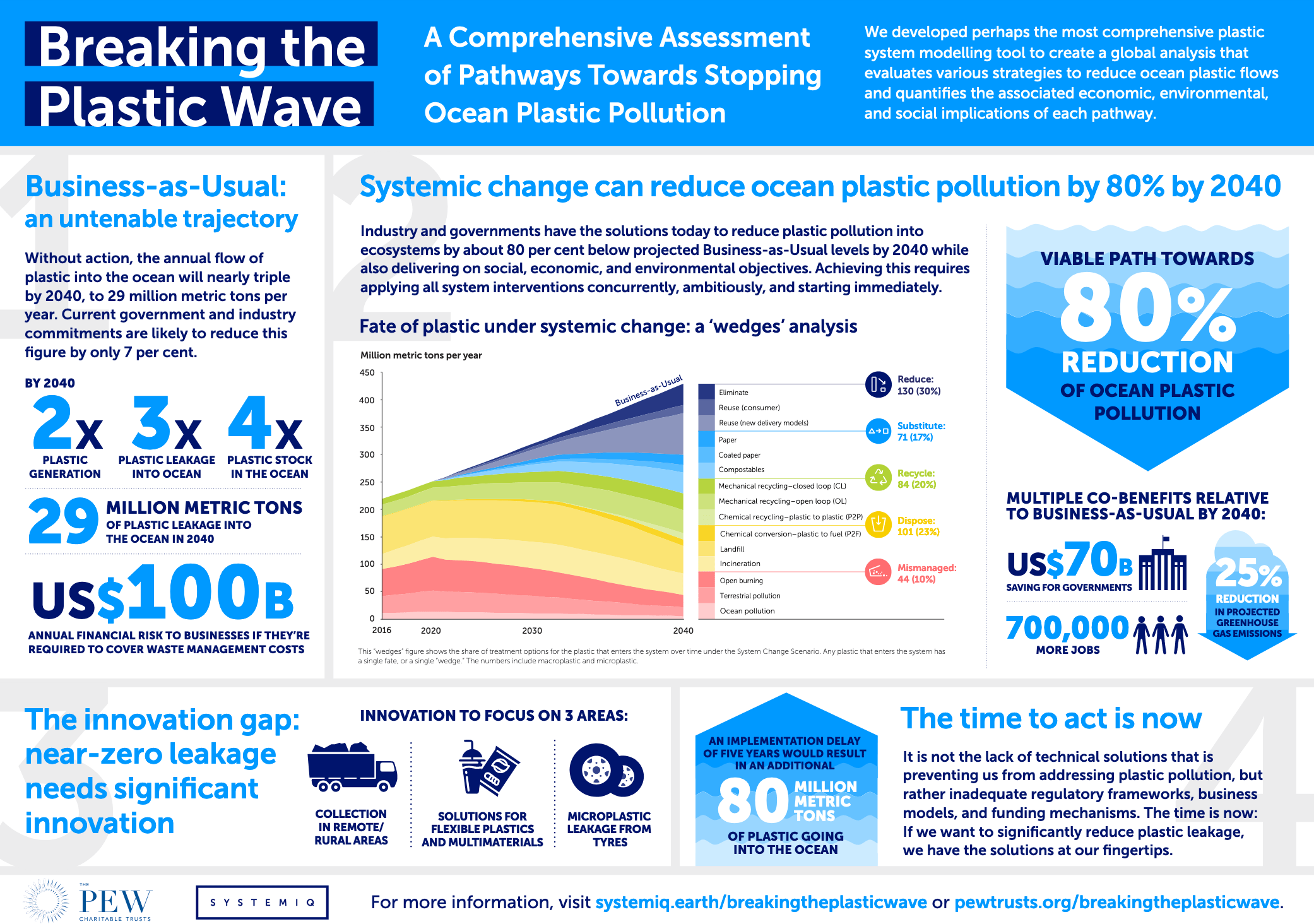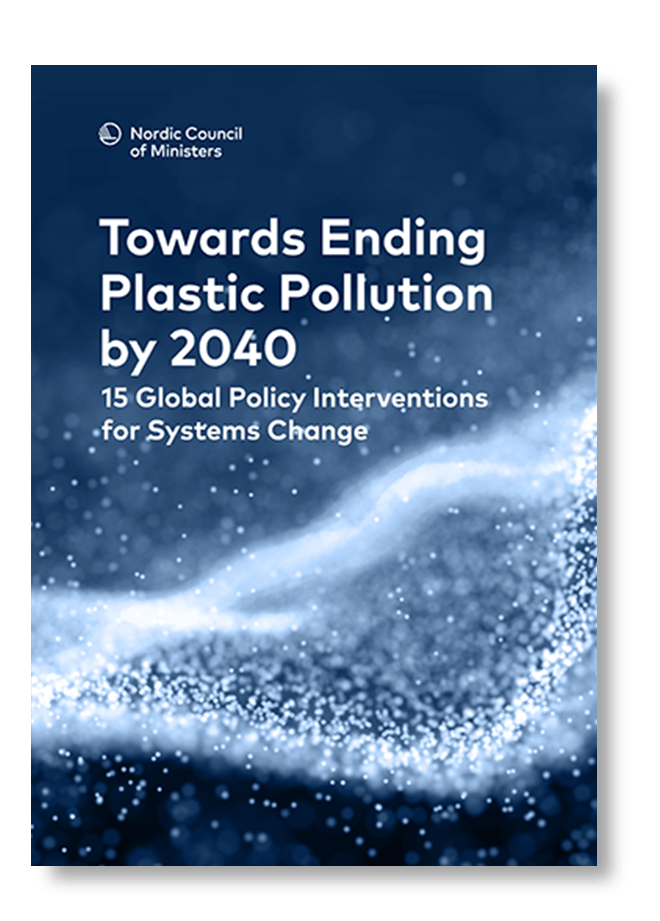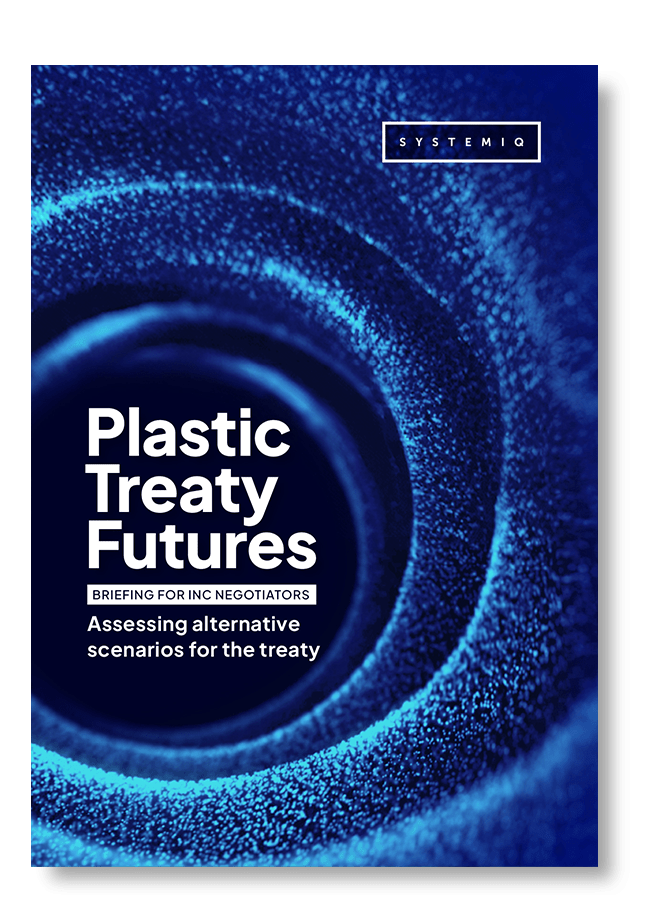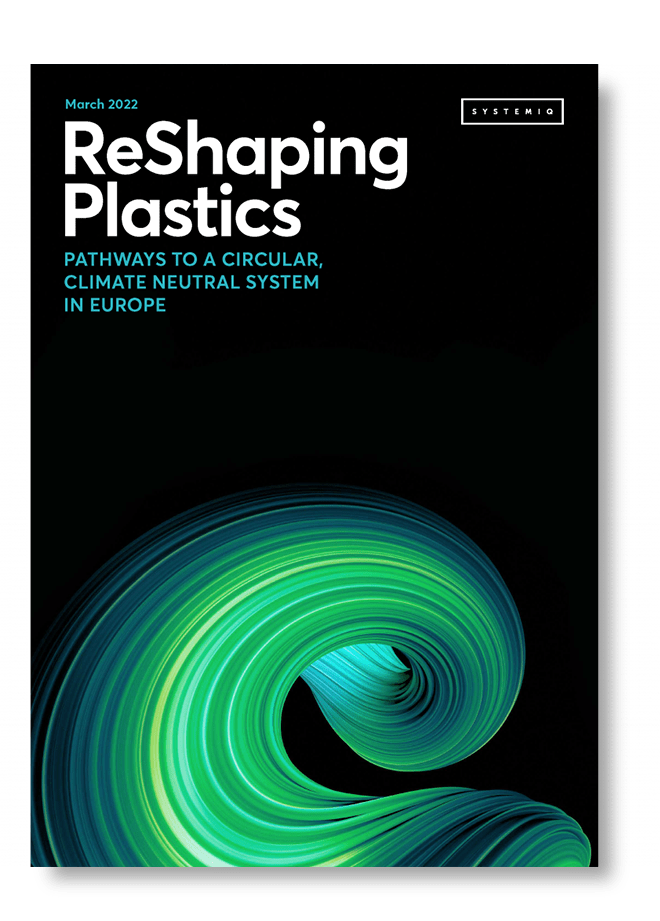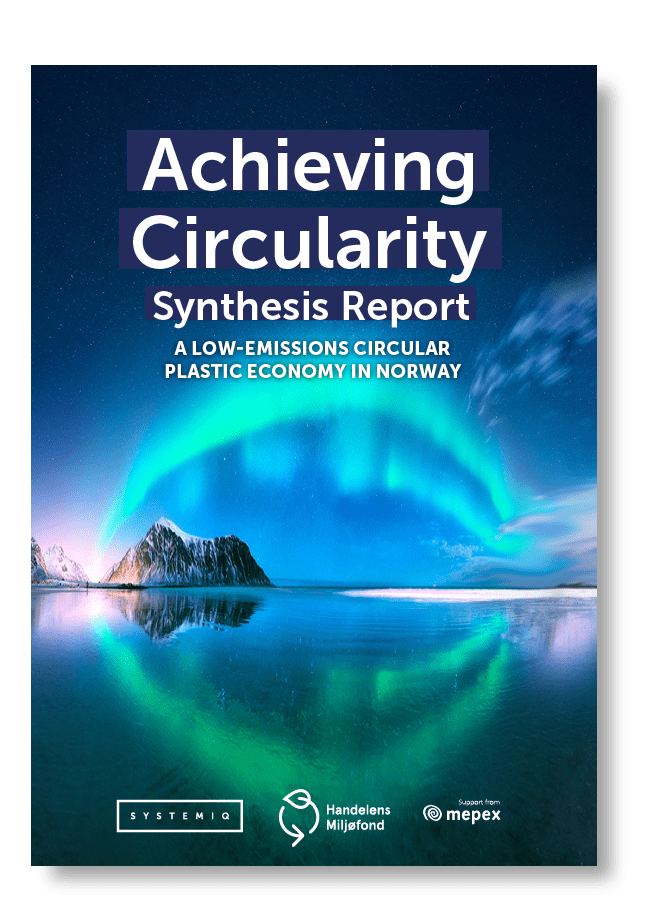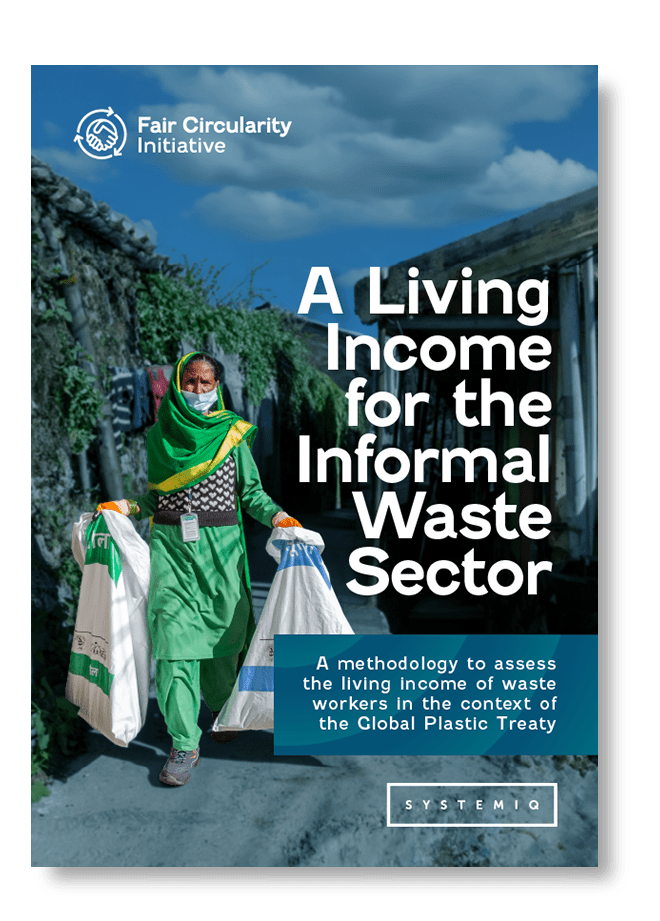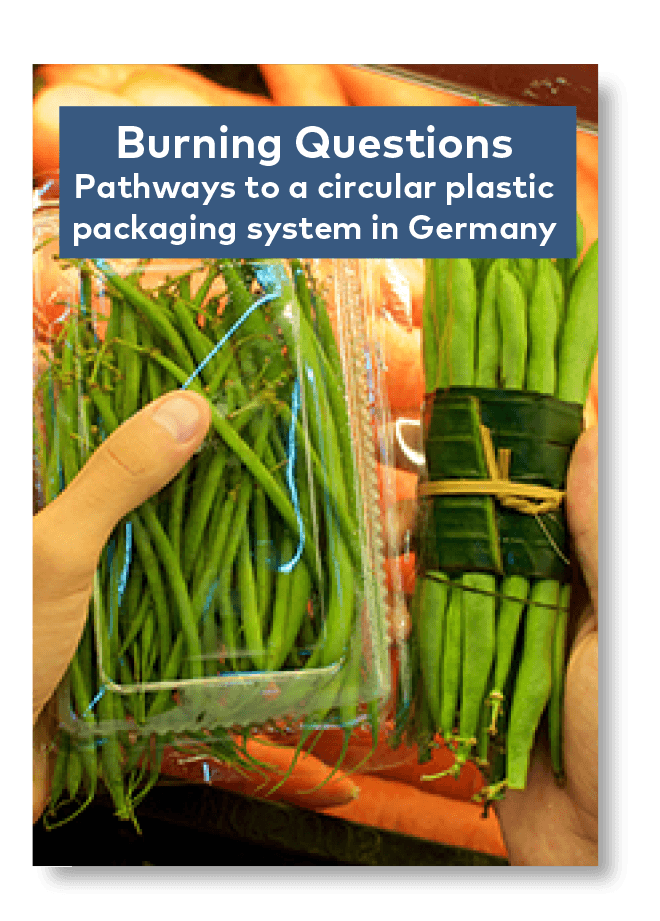Developed by The Pew Charitable Trusts and SYSTEMIQ, “Breaking the Plastic Wave: A Comprehensive Assessment of Pathways Towards Stopping Ocean Plastic Pollution” presents a first-of-its-kind model of the global plastics system. It is an evidence-based roadmap that describes how to radically reduce ocean plastic pollution by 2040 and shows there is a comprehensive, integrated, and economically attractive pathway to greatly reduce plastic waste entering our ocean.
The research supporting this report was co-developed with 17 experts from across the spectrum of professionals looking at the plastic pollution problem, with broad geographical representation. The findings of our analysis were published in the peer-reviewed journal, Science.
The aim of this work is to help guide policymakers, industry executives, investors, and civil society leaders through highly contested, often data-poor, and complex terrain.
By highlighting the systemic link between better plastic design, reuse, improved recycling economics, and increased collection incentives, these reports provided a central theme for the challenge addressed in “Breaking the Plastic Wave”: how to apply the concept of a circular economy—along with increased reduction and substitution of plastics, and better waste management—in a way that urgently addresses this serious environmental challenge.
The model is already being applied at the national level in Indonesia under the public-private collaboration National Plastic Action Partnership. This model can also be updated by stakeholders on an ongoing basis to inform solutions to the plastics pollution problem.
The problem of ocean plastic pollution was created in a lifetime, and we have reason to believe that it can be solved within a generation, or sooner. But such a solution requires political leaders, policymakers, business executives, and investors to shift from incremental to systemic change.
Among our findings, one is particularly stark: On the current trajectory, which we call Business-as-Usual, annual flows of plastic into the ocean could nearly triple by 2040. What’s more, even if all current major industry and government commitments are met, the world would see a reduction in annual rates of plastic pollution flowing into the ocean of only 7 per cent from the Business-as-Usual scenario.
Yet we also show that if the world were to apply and robustly invest in all the technologies, management practices, and policy approaches currently available—including reduction, recycling, and plastic substitution—in 20 years there would be about an 80 per cent reduction from the current trajectory in the flow of plastic into the ocean. And the new solutions recommended in this report would provide consumers with the same services that plastic delivers today—at a lower cost to society.
To learn more, contact the team on [email protected].







